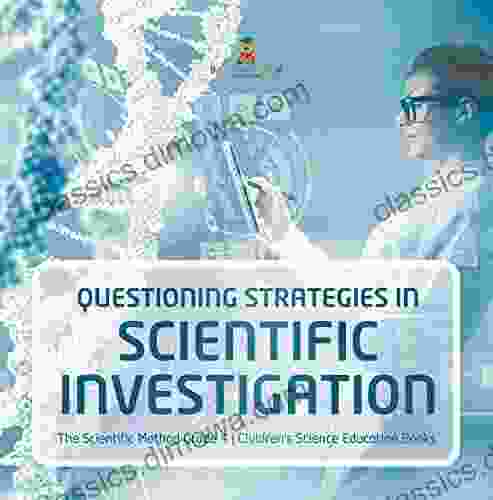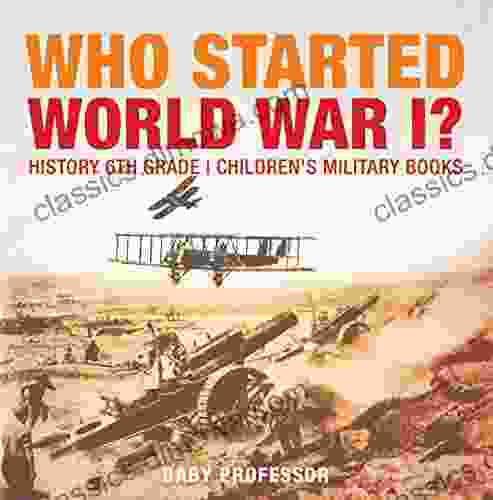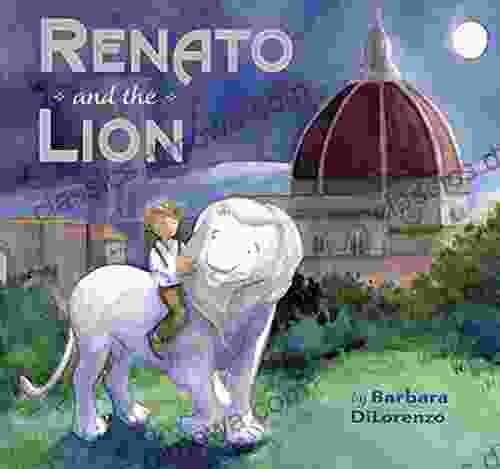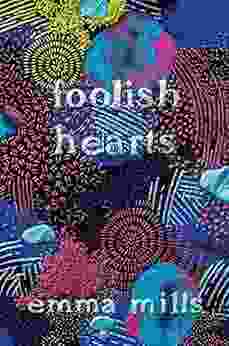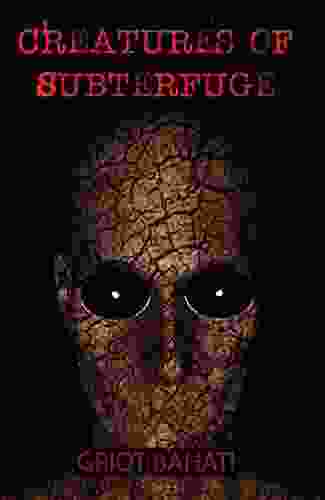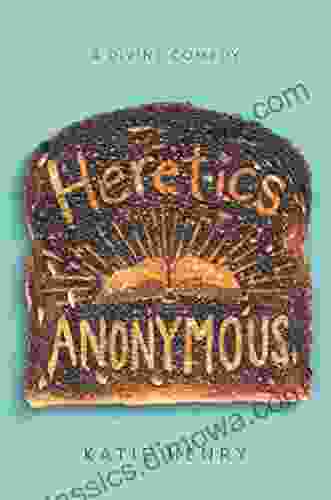Questioning Strategies In Scientific Investigation The Scientific Method Grade

The scientific method is a structured and logical approach to uncovering the mysteries of the natural world. It involves a series of steps that guide scientists in making observations, forming hypotheses, and testing their ideas through experimentation. At the heart of the scientific method lies the power of questioning—asking the right questions can lead to groundbreaking discoveries and deepen our understanding of the world around us.
This comprehensive guide is designed to equip you with the essential questioning strategies that will empower you to become an effective scientific investigator. Whether you're a budding young scientist or an experienced educator, this resource will provide you with the tools and techniques you need to foster critical thinking and unlock the secrets of scientific discovery.
5 out of 5
| Language | : | English |
| File size | : | 41864 KB |
| Screen Reader | : | Supported |
| Print length | : | 72 pages |
Chapter 1: The Art of Asking Good Questions
The ability to ask good questions is a cornerstone of scientific investigation. It's not simply about coming up with any question that comes to mind, but rather about crafting questions that are focused, relevant, and testable. In this chapter, we'll explore the different types of questions scientists ask, the characteristics of effective questions, and strategies for developing high-quality questions.
- Types of questions in scientific investigation
- Characteristics of effective questions
- Strategies for developing high-quality questions
- The importance of open-ended questions
- Using questioning to guide scientific inquiry
Chapter 2: Questioning Techniques for Hypothesis Generation
A hypothesis is a proposed explanation for a phenomenon or observation. It's a tentative statement that can be tested through experimentation. Generating a good hypothesis is essential for successful scientific investigation, and questioning plays a crucial role in this process. In this chapter, we'll explore different questioning techniques that can help you develop well-supported and testable hypotheses.
- The role of questioning in hypothesis generation
- Questioning techniques for identifying variables
- Using questioning to establish relationships between variables
- Formulating hypotheses based on evidence
- Evaluating the testability of hypotheses
Chapter 3: Questioning Strategies for Experimental Design
Once you have a hypothesis, the next step is to design an experiment to test it. The design of your experiment will determine the validity and reliability of your results. Questioning is essential for ensuring that your experiment is well-designed and will provide meaningful data. In this chapter, we'll explore different questioning strategies that can help you design effective experiments.
- The importance of questioning in experimental design
- Questioning techniques for identifying variables
- Using questioning to control variables
- Developing experimental procedures based on questioning
- Evaluating the validity and reliability of experiments
Chapter 4: Questioning Techniques for Data Analysis and Interpretation
After conducting your experiment, the next step is to analyze the data and interpret the results. Questioning plays a vital role in this process, helping you to uncover patterns, identify trends, and draw meaningful s from your data. In this chapter, we'll explore different questioning techniques that can help you effectively analyze and interpret your results.
- The role of questioning in data analysis and interpretation
- Questioning techniques for identifying patterns and trends
- Using questioning to evaluate the validity of results
- Developing evidence-based s based on questioning
- Communicating your results effectively through questioning
Chapter 5: Questioning Strategies for Scientific Communication
Science is a collaborative process, and being able to effectively communicate your findings is essential. Questioning is a powerful tool that can help you to engage your audience, clarify your ideas, and persuade others of your观点. In this chapter, we'll explore different questioning strategies that can help you effectively communicate your scientific findings.
- The importance of questioning in scientific communication
- Questioning techniques for engaging your audience
- Using questioning to clarify your ideas
- Developing persuasive arguments based on questioning
- Communicating your results effectively through questioning
Questioning is a fundamental skill for scientific investigation. By mastering the questioning strategies outlined in this guide, you can become a more effective scientist and uncover the secrets of the natural world. Remember, the key to successful scientific inquiry lies in asking the right questions, and with the tools and techniques provided in this resource, you're well-equipped to embark on your own scientific journey.

Free Download Your Copy Today
Empower yourself with the knowledge and skills to become a successful scientific investigator. Free Download your copy of "Questioning Strategies in Scientific Investigation" today and unlock the secrets of the scientific method.
5 out of 5
| Language | : | English |
| File size | : | 41864 KB |
| Screen Reader | : | Supported |
| Print length | : | 72 pages |
Do you want to contribute by writing guest posts on this blog?
Please contact us and send us a resume of previous articles that you have written.
 Book
Book Novel
Novel Page
Page Chapter
Chapter Text
Text Story
Story Genre
Genre Reader
Reader Library
Library Paperback
Paperback E-book
E-book Magazine
Magazine Newspaper
Newspaper Paragraph
Paragraph Sentence
Sentence Bookmark
Bookmark Shelf
Shelf Glossary
Glossary Bibliography
Bibliography Foreword
Foreword Preface
Preface Synopsis
Synopsis Annotation
Annotation Footnote
Footnote Manuscript
Manuscript Scroll
Scroll Codex
Codex Tome
Tome Bestseller
Bestseller Classics
Classics Library card
Library card Narrative
Narrative Biography
Biography Autobiography
Autobiography Memoir
Memoir Reference
Reference Encyclopedia
Encyclopedia Elbert Hendricks
Elbert Hendricks Ashney Patoka
Ashney Patoka Barbara Hambly
Barbara Hambly Luke Mckenna
Luke Mckenna Zong Woo Geem
Zong Woo Geem Earl Derr Biggers
Earl Derr Biggers Louis Fantasia
Louis Fantasia Brian Gill
Brian Gill Gayle Kimball
Gayle Kimball Trina St Jean
Trina St Jean Paul Scott
Paul Scott Arupjyoti Saikia
Arupjyoti Saikia Ayaz Memon
Ayaz Memon Samson Yung Abu
Samson Yung Abu Arthur Rackham
Arthur Rackham George Garrigues
George Garrigues Mauro Berno
Mauro Berno Mary Baures
Mary Baures Dave Zirin
Dave Zirin Ashis Sengupta
Ashis Sengupta
Light bulbAdvertise smarter! Our strategic ad space ensures maximum exposure. Reserve your spot today!
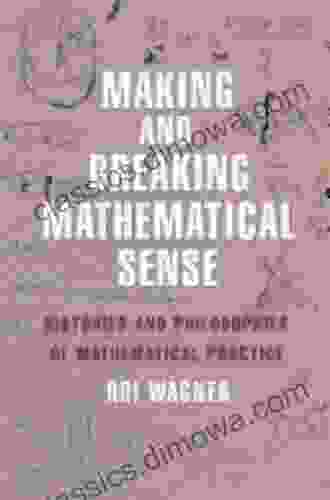
 Jaime MitchellUnlock the Secrets of Mathematical Practice: Exploring the Histories and...
Jaime MitchellUnlock the Secrets of Mathematical Practice: Exploring the Histories and... Rob FosterFollow ·19k
Rob FosterFollow ·19k Eli BrooksFollow ·2.2k
Eli BrooksFollow ·2.2k Martin CoxFollow ·2.9k
Martin CoxFollow ·2.9k Jayson PowellFollow ·12.4k
Jayson PowellFollow ·12.4k Craig BlairFollow ·3.6k
Craig BlairFollow ·3.6k Grayson BellFollow ·9.3k
Grayson BellFollow ·9.3k Alexandre DumasFollow ·18.1k
Alexandre DumasFollow ·18.1k Noah BlairFollow ·9.5k
Noah BlairFollow ·9.5k
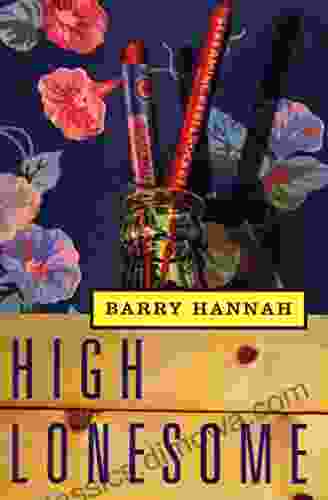
 Marcus Bell
Marcus BellHigh Lonesome: A Literary Journey into the Heart of the...
<p>Hannah weaves a intricate...
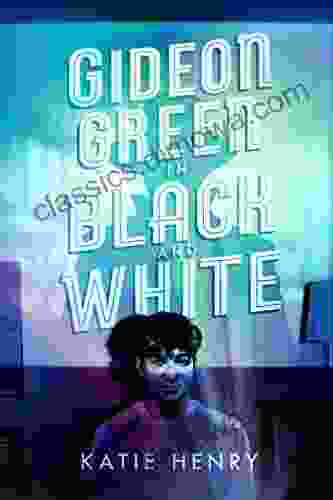
 Gabriel Hayes
Gabriel HayesRediscover Gideon Green's Timeless Adventures in "Gideon...
Embark on an Extraordinary Journey with...
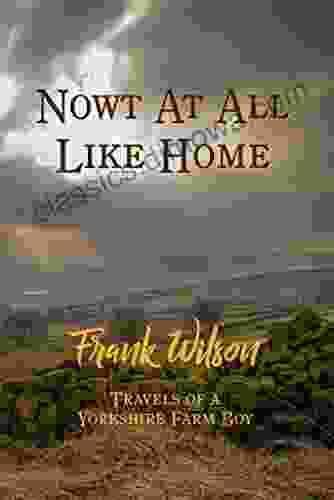
 Samuel Taylor Coleridge
Samuel Taylor ColeridgeEscape to a Literary Haven: Discover the Enchanting World...
Embark on an Extraordinary Literary...
5 out of 5
| Language | : | English |
| File size | : | 41864 KB |
| Screen Reader | : | Supported |
| Print length | : | 72 pages |


